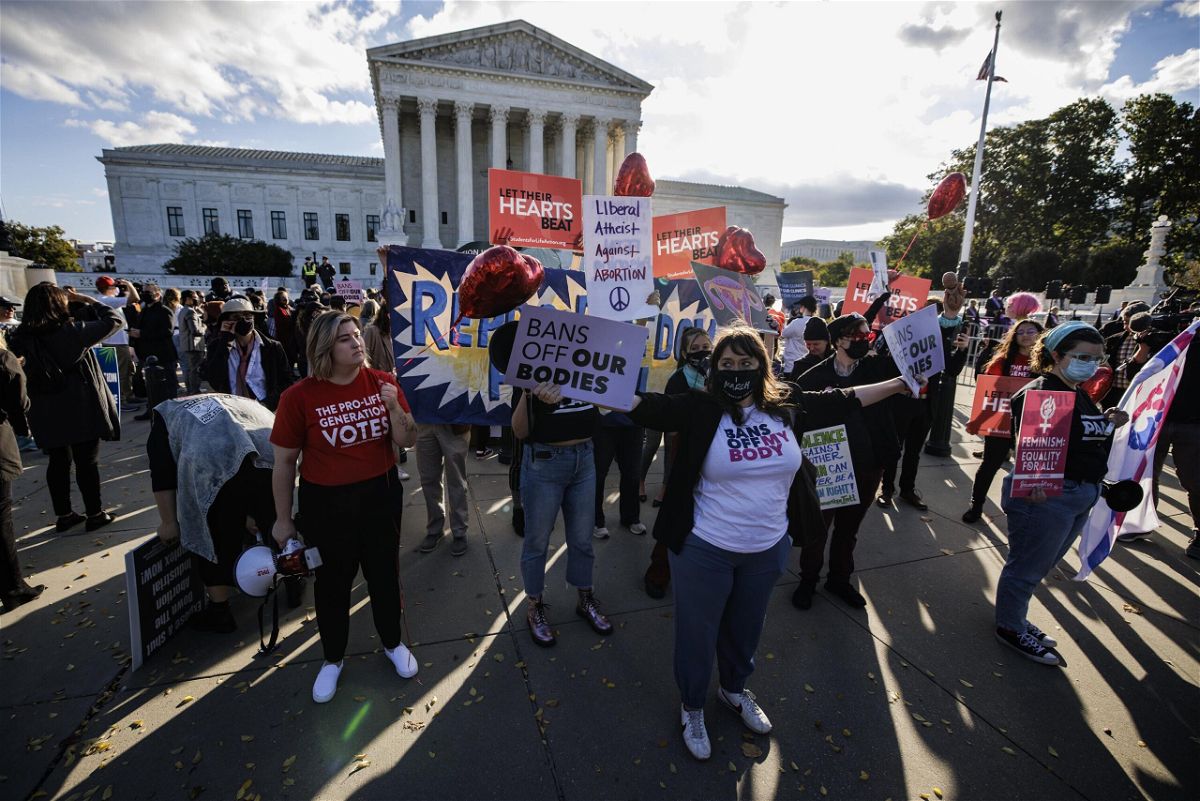Supreme Court’s head fake leaves Texas women waiting for answers on abortion rights

Women in Texas who have been blocked from exercising their constitutional right to obtain an abortion for almost three months had reason to expect Monday that the Supreme Court was poised to rule on challenges to the state restrictions.
By Ariane de Vogue, CNN Supreme Court Reporter
Women in Texas who have been blocked from exercising their constitutional right to obtain an abortion for almost three months had reason to expect Monday that the Supreme Court was poised to rule on challenges to the state restrictions.
That’s because, last week, the court announced that it would release the term’s first set of opinions Monday. Abortion providers, lawyers, journalists and anyone following the abortion wars, believed that because the case had been fast-tracked due to confusion on the ground in the country’s second-largest state, the opinion was imminent.
Court watchers gathered virtually at 10 a.m. ET, preparing to download an opinion about Texas’ six-week abortion ban.
Instead, all they got was unanimous ruling on a water rights dispute between Mississippi and Tennessee.
As a result, uncertainty will continue to reign in Texas where doctors are afraid to perform abortions after around six weeks into a pregnancy for fear of the law’s draconian penalties, clinics in nearby states are overwhelmed with Texas patients. Women without the means to travel — including victims of rape and incest who are not exempted from the law — are left with few options. Roe v. Wade, the near 50-year-old decision legalizing abortion nationwide prior to viability, which can occur at around 24 weeks of pregnancy, continues to be a dead letter in Texas.
After oral arguments on November 1, supporters of abortion rights were given reason to hope, but they are stunned that the court has yet to act.
A majority of justices, including conservatives Brett Kavanaugh and Amy Coney Barrett, expressed skepticism during oral arguments. Liberal Justice Elena Kagan appeared incandescent at times, referring to the architects of the law derisively as “some geniuses” who sought to find a way around the premise that “states are not to nullify federal constitutional rights.”
There was a note of urgency in the air in the august chamber, an unspoken suggestion that there would soon be resolution to a case that has captured the nation’s attention, placed the justices under the glare of public spotlight and reignited the decades old furor about a woman’s right to an abortion.
To be sure, the process to craft an opinion is arduous and ordinarily takes months. The justices are writing to resolve the case at hand, but also to educate the lower courts for future, similar challenges. In most instances, draft opinions ricochet through chambers. Sometimes justices add their own notes or suggest language that could garner their vote. A cast of law clerks examine each portion of the opinion to ensure it is watertight. Every once in a while — even late in the game — a justice changes his or her mind.
The Texas law, which a 5-4 court allowed to go into effect on September 1 while the appeals process plays out, bars abortions after the detection of a fetal heartbeat at around six weeks — often before a woman knows she is pregnant — and is in stark contrast to Roe v. Wade. The justices are considering the law’s novel structure which bars state officials from enforcing it.
Private citizens from anywhere in the country can bring civil suits against anyone who assists a pregnant person seeking an abortion in violation of the law. Critics say it was crafted to shield it from challenges in federal courts and stymie attempts by abortion providers and the government to sue the state and block implementation.
Now, supporters of abortion rights wonder if the conventional wisdom after oral arguments was wrong or if the justices are looking for a novel or unexpected way to handle the dispute.
“Every day without a ruling from the Court is another day a blatantly unconstitutional law prevents people in Texas from fully accessing their right to abortion—and it’s way past time to put an end to this attack on equality,” said Elizabeth Wydra, president of the progressive Constitutional Accountability Center. “The wheels of justice often turn slowly, but we need the Justices to step on the gas here.”
“The cruelty and heartache that our staff and patients have endured will continue,” Amy Hagstrom Miller, president and CEO of Whole Woman’s Health, which is behind the challenge, said in a statement.”
Hagstrom Miller said that patients “deserve better than the constant attacks on their reproductive autonomy” and clinic staff who “show up day after day in a situation that none of us ever thought we would find ourselves in” are suffering.
Hagstrom Miller knows that even if her side wins before the Supreme Court and providers are allowed their day in court to challenge the law, another, potentially more consequential case looms. On December 1, the justices will hear a case in which Mississippi is directly asking the court to overturn Roe v. Wade.
Many believed that the Texas case would be resolved long before that dispute.
Kimberlyn Schwartz, spokeswoman for the anti-abortion group Texas Right to Life, suggested in a statement that the court might be poised to rule in her group’s favor given the delays thus far.
“If the Supreme Court believed the Texas Heartbeat Act was as outrageous and unconstitutional as the abortion industry claims, they would likely want to act quickly, at least entering a temporary stay on the law,” Schwartz said. “Meanwhile, every day the Texas Heartbeat Act is in effect is a victory because the law saves an estimated 75-100 babies from abortion per day,” she said.
Sean M. Marotta, a lawyer at Hogan Lovells, tweeted about the Supreme Court’s inaction after the announcement of the water case on Monday.
“Scotus once again proving the ancient truism: Except on the last day of the Term, anyone who says they know when a particular opinion is coming out is guessing or lying,” he said.
The-CNN-Wire
™ & © 2021 Cable News Network, Inc., a WarnerMedia Company. All rights reserved.


